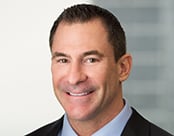Division of Enforcement
The conference also included two panels featuring members of the Division of Enforcement (the “Division”). These panels included a substantive statement from Director Grewal and also touched on priorities and highlights from across a wide range of enforcement areas.
Statement of Director Grewal
Director of the Division Grewal began the panel by discussing what he described as an urgent need to restore trust in our institutions, government, and the legal and regulatory process. Director Grewal noted that he had previously discussed the role of gatekeepers and the importance of corporate responsibility, but he focused his remarks on how the SEC is combating distrust which stems from a belief that the government’s actions benefit only a favored group. He said that inclusion and equity require tangible measures, broadening perspectives, and accountability.
During his remarks, Director Grewal discussed (1) how the Division’s diversity and inclusion practices lead to better enforcement outcomes and (2) how equity and accountability requires that the Division regulate the crypto asset market. First, Director Grewal said that the Division is focused on diversifying its workforce. The Division is working to ensure its hiring and promotion practices are fair and equitable. Director Grewal also noted that the Division is increasing opportunities for new staff in its regional offices. Director Grewal said the diverse workforce improves efficiency and efficacy by reducing “unconscious or structural biases” or other barriers which limit the attraction or advancement of competitive candidates.
Director Grewal stated that a diverse workforce also helps the Division investigate fraud. Some victims of fraud are skeptical of the government. For certain types of affinity frauds (e.g., those for which “the perpetrator appealed to the victim’s closeness to their community and . . . suspicion of outsiders”), the Division has trouble convincing victims to cooperate or believe the Division’s allegations. Director Grewal said that having a diverse workforce can foster trust and encourage victims to come forward. Director Grewal said that this would “enable [the Division] to carry out [its] mission of protecting all investors.”
Turning to the crypto space, Director Grewal acknowledged that there has been criticism that the SEC—and the Division in particular—has been picking favorites in the crypto asset space. Director Grewal noted that the remarks usually stem from the fact that the Division is not giving crypto assets a “pass” from longstanding regulations.
Director Grewal said that individual investors “may bear a disproportionate burden” when the crypto market suffers adverse events. He noted that non-White and lower-income investors have been recently identified as experiencing an “outsized impact” from problems in the crypto market. He said that these populations may be attracted to crypto assets due to their skepticism of the American financial system.
Director Grewal stated that failure to act in order to avoid criticism would be a failure to impartially enforce the laws for the benefit of investors and our markets. He said that the Division cannot avoid confronting novel issues, especially when they trigger passionate beliefs. Director Grewal said crypto market participants seeking relief may do so through advocating for rule changes or legislative relief. He believes that non-enforcement would be an abandonment of the Division’s responsibilities and is not an option.
Director Grewal believes “the Howey and Reves tests remain . . . accurate means of identifying instruments that fall within the jurisdiction of the securities laws,” which will be enforced “regardless of what label is used or technology is involved.” Director Grewal said that to ignore the SEC’s rules in favor of the crypto space would be “unfair, unequitable, and undemocratic.”
Policy Goals
Sanjay Wadhwa, Deputy Director of Enforcement, said that Director Grewal identified core goals for the Division last year, including deterring misconduct, shaping market behavior, and ensuring accountability. In furtherance of these goals, the Division has shaped its enforcement efforts to encourage proactive compliance. For example, Wadhwa noted that the Division previously issued a $125 million fine for a books and records violation to gather the market’s attention and further deterrence. Mr. Wadhwa noted that, when a firm agrees to implement improvements and the SEC order maps out those improvements, it provides a guide for other firms to follow. Mr. Wadhwa also noted that the SEC is rewarding proactive cooperation and mediation. The Division benefits from cooperators and, at times, has declined to impose penalties due to a firm’s cooperation and remedial efforts.
SOX 304
Mr. Wadwha said the use of SOX 304 orders against senior executives who were not charged under any additional provisions increased accountability and helped shape the behavior of individual market participants. He stated that the use of SOX 304 incentivizes executives to detect and prevent misconduct at their firms.
Samuel Waldon, Chief Counsel, noted that, under SOX 304, an executive’s failure to reimburse for bonuses, contingent compensation, and stock sale profits tied to a misstatement when an accounting restatement is required is a violation of the law. Per Mr. Waldon, the purpose of SOX 304 is to incentivize officers to establish robust reporting and an appropriate “tone at the top.” Consistent with those purposes, the Division has brought SOX 304 claims against non-culpable CEOs and CFOs without limiting their requested reimbursement to the portion inflated by fraud. Mr. Waldon noted that the use of Director and Officer (“D&O”) insurance to fund the reimbursement is inconsistent with the policy underlying the statutes. Accordingly, the Division will seek to prevent D&O insurance payments in settlements of SOX 304 claims. Similarly, allowing indemnification of any sort would eliminate or diminish the purposes of the statute. Mr. Waldon stated that, when a firm had identified a misstatement, the CEO and CFO have the obligation to make a repayment and that there would be no claim under SOX 304 once the repayment was made. He recommended that CEOs and CFOs make such repayment as soon as possible to avoid assertion of claims by the Commission.
Officer and Director Bars
Mr. Waldon said that Officer and Director (“O&D”) bars are one of the most powerful remedies for the Commission. He noted that the Division uses O&D bars when individuals demonstrate they are no longer fit to serve or, if an individual has a likelihood of becoming an officer or director in the future, when an individual’s actions disqualify them from being later fit to serve. The ’33 Act and the Securities Exchange Act of 1934 (the “Exchange Act” or the “’34 Act”) provide statutory bases from which the Division can seek O&D bars based on unfitness or scienter. Additionally, Section 21(d)(5) of the ’34 Act provides an equitable basis from which to seek an O&D bar when appropriate for non-scienter based conduct. Mr. Waldon remarked that the Division will use this provision to seek O&D bars against individuals who have not yet served as officers or directors but—based on the Division’s assessment of work experience, age, and educational background—could potentially become an officer or director in the future.
Disgorgement
Mr. Waldon noted that, consistent with the Supreme Court’s decision in Liu v. SEC, the SEC will only seek net profits in disgorgement. It remains the obligation of the settling party to provide support for any expenses claimed as deductions. Mr. Waldon highlighted that the SEC will review the expenses carefully to determine whether they are appropriate as deductions. The SEC will also seek disgorgement even in cases where funds cannot be returned to investors and will instead be sent to the Treasury. In insider trading cases, consistent with Section 21A of the Exchange Act, the SEC is now seeking two-times penalties, plus an amount equal to the prejudgment interest they would have obtained had they sought disgorgement. Mr. Waldon stated that the Commission will seek disgorgement to the fullest extent permissible.
Olivia Choe, Chief Litigation Counsel, described the Division’s continued efforts to litigate the contours of disgorgement after the Supreme Court’s decision in Liu. Ms. Choe said that, after the Supreme Court remanded, the SEC obtained a judgment ordering the defendant to disgorge $25 million, which was affirmed on appeal. Ms. Choe said the SEC is seeing a number of cases agreeing that they have the authority to seek and enforce disgorgement where funds are being sent to the Treasury when they cannot be sent to an identifiable victim.
Wells Process
Mr. Wadhwa said the Division’s approach to the Wells process is to decline requests for meetings unless there are significant policy considerations, novel issues involved, or other relevant considerations exist. He reiterated that the Wells process is still important and that the submissions impact decision-making at the Division. Mr. Wadhwa acknowledged that the Division has walked away from potential charges as a result of certain Wells meetings. Mr. Wadhwa said the Wells process is time-intensive and requires significant resources, and that the Division takes seriously the views of its Staff during this process.
Trials
Ms. Choe discussed the cases taken to trial in the last year. Ms. Choe noted that there were 15 district court trials for the SEC in the past year, the most since 2015. In contrast, due to the pandemic, during the prior year, the Commission only had five trials. Ms. Choe reported that the SEC obtained a favorable jury verdict in thirteen of the cases, with a win rate of over 85%. Additionally, the SEC prevailed at summary judgment on nine additional cases in 2022. Ms. Choe said the types of cases varied, including insider trading, investor frauds, Ponzi schemes, and the commission splitting rule, demonstrating the breadth of cases the Commission is willing to take to trial.
Ms. Choe cited to SEC v. Beasley in which the SEC obtained an asset freeze and a receivership in a $415 million Ponzi scheme case. The SEC amended the complaint to add individuals who had earned $40 million from the scheme and added their assets to the freeze. Ms. Choe highlighted the Commission’s success in both front- and back-end enforcement against wrongdoers, including litigating against the CEO of an electric car company who moved to quash the SEC’s subpoenas predicated on the CEO’s tweets. The court in that case denied the motion to quash. In a collections action, the Commission obtained an asset freeze over a defendant’s assets, including a 45-foot catamaran, when the defendant refused to pay a $7 million disgorgement award. In another case, a defendant was incarcerated for repeatedly refusing to make payments toward a disgorgement award.
Former Commissioner Harvey Pitt asked to what extent SEC v. Jarkesy would impact forum selection. Ms. Choe responded that the matter would be argued in appellate courts and the Supreme Court. She noted that, while the 15 trials in 2022 were all in district courts, the SEC will continue to use administrative proceedings, as appropriate, where they are the only forum in which a particular claim could be brought, or relief sought, for the misconduct at issue.
FCPA
Charles E. Cain, Chief of the Foreign Corrupt Practices Unit, discussed the ebb and flow of Foreign Corrupt Practices Act (“FCPA”) enforcement proceedings and noted the number of cases has dropped over the past two years. He attributed the trend to the nature of investigating conduct primarily occurring overseas, and explained COVID-19’s impact on investigation timelines because of the need to obtain evidence abroad.
Mr. Cain further highlighted the types of industries being charged with violations of the Foreign Corrupt Practices Act (“FCPA”), which includes financial services, telecommunications, and life sciences. By way of example, he discussed the enforcement action against a waste management company for FCPA violations arising out of bribery schemes that took place in Argentina, Brazil, and Mexico. He noted that it was unusual for a company of that size to lack internal accounting controls procedures to ensure compliance with the FCPA. Notably, Mr. Cain explained that the Staff engaged an auditor to assist in the investigation. Mr. Cain stated that the company ultimately agreed to pay $84 million dollars to settle the SEC’s charges, as well as parallel criminal charges.
Mr. Cain also discussed the importance of international cooperation when investigating potential FCPA violations. He explained that the Commission has strong relationships with law enforcement in the United States and abroad, which facilitate international investigations. To illustrate, Mr. Cain noted that in June 2022, the Commission charged a global steel pipe manufacturer with violating the FCPA in connection with a bribery scheme. Mr. Cain stated that this investigation involved multiple jurisdictions and government agencies and posed substantial coordination issues. He also mentioned that the company was a repeat offender, noting that in 2011 it had entered into a Non-Prosecution Agreement with the Department of Justice and a Deferred Prosecution Agreement with the SEC, as a result of a corruption scheme where the company paid bribes to obtain business from a state-owned entity in Uzbekistan.
To conclude, Mr. Cain explained that, although there is no cooperation program specific to the FCPA, the Staff tries to strike a balance between incentivizing cooperation (such as via self-reporting) and the need for deterrence. In order to streamline the investigative process, he advised entities not to wait until the investigation concludes to translate documents and witness statements. He also suggested that companies should encourage employees to speak to the Staff and consider facilitating travel for witnesses overseas for interviews with the Staff.
Whistleblowers
N. Creola Kelly, Chief of the Office of the Whistleblower, reviewed the Division’s commitment to whistleblowers, highlighting the $226 million in distributions to 78 individuals, the SEC’s second highest year in terms of dollars awarded and number of individuals. According to Ms. Kelly, this figure reflects an ongoing commitment to process whistleblower claims more quickly despite COVID challenges. Ms. Kelly touched on a recent rulemaking which clarified the Division’s position when considering a dollar amount for awards. The rule articulates when the Division can make awards on related action when there is an alternative whistleblower program in place. The Commission remains committed to investigating Rule 21f-17, and it takes efforts to impede or retaliate against whistleblowers seriously.
Reg BI / Broker-Dealers
Daniel Gregus, Director of the Chicago Regional Office, discussed Regulation BI. The regulation requires broker dealers to act in the best interest of retail customers and creates four affirmative duties: (1) disclosure, (2) care, (3) conflict of interest, and (4) compliance. The Division brought its first proceeding enforcing regulation BI within the past year, highlighting the care obligation and compliance obligation. The proceeding alleges that a broker-dealer sold speculative and illiquid securities to fixed income customers. The Division alleged that the broker-dealer failed to comply with its “care” obligation under Reg BI due to a failure to exercise diligence associated with the particular securities, as well as because the broker-dealer recommended the securities without adequate basis to believe that they would be in the clients’ best interests. Mr. Gregus said the firm also failed to establish and maintain appropriate procedures to apply Regulation BI to its business.
Stacy Bogert, Associate Director, Division of Enforcement, discussed the SEC’s actions against broker-dealers. Ms. Bogert stated that broker-dealers are important gatekeepers who share responsibility for maintaining market integrity and public confidence in the securities markets. She further noted that the SEC has brought over 40 cases over the last 14 months stemming from inadequate Forms CRS, which are intended to be summaries provided to clients. She stated that the SEC’s recent cases demonstrate a continued focus in this area. Additionally, she noted that the SEC is also focused on off-channel communications at broker-dealers. She reiterated that, as gatekeepers who are essential to market integrity, broker-dealers have record-keeping obligations. To illustrate, Ms. Bogert discussed a case brought against a broker-dealer for what she characterized as a longstanding failure to maintain and preserve written communications contained on personal devices. She noted that broker-dealer firms should recognize the reality of how employees communicate, including via text messages, WhatsApp, and personal e-mail accounts. Finally, Ms. Bogert explained that cybersecurity continues to be a focus for the SEC. She noted that broker-dealers are required to safeguard customer information and are obligated to have sufficient policies and procedures to do so.
SPACs
D. Mark Cave, Associate Director of the Division, discussed three recent special purpose acquisition company (“SPAC”) cases against both companies and individuals (including SPAC officers and sponsor entities). He noted that the SPAC market declined following these enforcement actions. He stated that 75 SPACs went public this year, compared to 600 in 2021 and over 200 in 2020. However, Mr. Cave noted that the market remains active, as there are between 500 and 600 SPACs searching for acquisition targets looking to close in the next few months. He observed an uptick in pressure for deals to close but a narrowing set of targets. There is also an uptick in liquidations for the first time. Mr. Cave stated, in short, as the market changes, so does the need to assess how risks are evolving.
To illustrate the inherent nature of conflict of interest risks in SPACs, Mr. Cave noted that the Staff recently charged an investment adviser for failure to disclose a conflict of interest where he had ownership interest in several SPACs but caused a fund to participate in PIPE transactions and purchase SPAC shares in the open market. He stated that the SEC is considering new rules to regulate the SPAC space to address conflict of interest issues.
EPS Initiative
Mr. Cave also explained the SEC’s use of data analytics to develop leads and evidence. He focused on the EPS Initiative, which uses data analytics to identify violations relating to earnings management. Mr. Cave noted the Staff has brought five EPS Initiative cases thus far and stated that these matters would have been difficult to detect without using data analytics. For example, earlier this year, the Staff filed a case against a public company and its former CEO for alleged misconduct, which resulted in the EPS Initiative’s largest civil penalty to date, $8 million. Cave also highlighted a recent enforcement action against a public company and two former executives for accounting and disclosure fraud in a case where the company substantially cooperated in the course of investigation by providing evidence that the Staff did not uncover. Mr. Cave stated that this settlement illustrates the impact of early and effective cooperation.
Crypto Assets and Cyber Unit
Ms. Choe noted that the SEC has been actively litigating cases in the crypto asset space and to expect more actions in this space in the coming year. The Division has expanded the Crypto Assets and Cyber Unit and delegated additional trial resources to those matters.
David Hirsch, the incoming chief of the Crypto Assets and Cyber Unit, said that he wanted to continue to deploy resources to ensure fairness of the markets and improve efficiency. Mr. Hirsch said that registration is key in this area, particularly for issuers. Section 5 of the ’33 Act is vital to ensuring that investors get access to the information to which they are entitled so they can make accurate decisions on which issuances they would like to invest. Mr. Hirsch said this would require the hiring of attorneys and consultants and to make sure the wellbeing of investors is at the forefront. Mr. Hirsch referenced two cases in which investors lost tens of millions of dollars collectively to fraud. He stated that if there were a greater culture of compliance, it would have been easier for investors to distinguish between fraudulent and legitimate opportunities.
Mr. Hirsch noted that registration is key for secondary markets as well. Registration would help make platforms and participants more accountable. Secondary markets should have systems in place to prevent wash trading and market manipulation on networks that can be opaque. Mr. Hirsch said SEC v. Wahi shows how the SEC will approach this topic. Mr. Hirsch stated that, in the long term, a no- or low-accountability financial system has not historically been great for retail investors. There must be an ability to keep known fraudsters out of the network.
With respect to cybersecurity, Mr. Hirsch said that reporting a breach is key for issuers. He cautioned that if an issuer is aware of a breach, they should be on the lookout for insider trading between the time of the breach and its disclosure. Registrants also must focus on safeguarding consumers’ personally identifiable information. Public issuers should respond appropriately and timely.
Former Commissioner Gallagher encouraged the SEC to continue providing additional guidance in the crypto asset space. Director Grewal responded noting that he was hopeful the public can see that the Division is being more intentional with its analyses, what it is looking at, and articulating a path forward. The Division is encouraging participants to come in and have an open dialogue.
Complex Financial Instruments Unit
Osman Nawaz, Chief of the Complex Financial Instruments Unit (“CFI”), described the CFI unit’s history, stating that it was created over 12 years ago in the wake of the financial crisis to ensure the agency is at the cutting edge of complex markets. Today, the markets have increased in size and volume of trading activity. The role of CFI is to have expertise in complex markets. Mr. Nawaz said enforcing the law in opaque markets where complex products trade is a priority because it promotes market integrity, increases transparency, and protects against system-wide risk. CFI is pacing its investigations with care to be proactive and strategic, and is using data analytics both in support of its investigations and to surveil markets. CFI has noticed the growth in popularity of equity swaps and is repurposing Exchange Act Section 9(j)(i) in response.
Market Abuse Unit
Thomas P. Smith, Jr., Acting Regional Director, New York Regional Office, spoke about the Market Abuse Unit’s (“MAU”) success in using data analytics to identify fraud. He stated that data analytics is a major component of the MAU, generating leads for more than half of the cases filed by the SEC. Mr. Smith explained that data analytics is used, among other things, to review trading records and public filings and examine factors such as how often traders trade, the timing of their trades, the types of trades made, and whether individuals are trading in concert. He also noted that the MAU has brought, and will continue to investigate, insider trading cases in the crypto space and is not concerned with the label of a security when investigating such cases.
Asset Management Unit
Jason J. Burt, Acting Regional Director, Denver Regional Office, focused his remarks on the work of the Asset Management Unit (“AMU”), noting that it has been a very busy year for the unit. Mr. Burt stated that the AMU’s goals include ensuring that advisers are meeting their fiduciary duties to their clients, particularly in terms of acting in their best interests. Mr. Burt cautioned advisers to “say what you do and do what you say.” He explained that advisers should subordinate their own interests to those of their clients, avoid misrepresentation of fees, and disclose all aspects of how they are compensated.
Additionally, Mr. Burt stated that much of what the AMU does concerns conflicts of interest between advisers and their clients. He urged advisers to review the Division of Asset Management’s 2019 fiduciary interpretation release discussing conflict disclosures. He also noted that the SEC will likely continue bringing cases stemming from advisers placing clients in different share classes without adequate disclosures. Finally, Mr. Burt stated that the SEC will continue to place more focus on individual liability to help deter misconduct by investment advisers.
Public Finance Abuse Unit
Rebecca Olsen, Deputy Chief of the Public Finance Abuse Unit, discussed her work with municipal bonds and public pension funds. She explained that the municipal securities market is a $4 trillion market, where state and local governments issue debt securities to finance a wide variety of public projects, like infrastructure. Ms. Olson explained that municipal bond actions are to protect investors and issuers. Ms. Olson stated that the Commission regulates three categories of participants in the market: (1) municipal issuers; (2) broker-dealers; and (3) municipal advisers.
With respect to municipal issuers, Ms. Olson highlighted three recent enforcement actions. First, a school district and its former Chief Financial Officer were charged with misleading investors who purchased $28 million in municipal bonds where the district and former CFO provided investors with misleading budget projections that indicated the district could cover its costs and would end the fiscal year with a positive fund balance. The investigation revealed that the district was instead engaged in significant deficit spending. Second, the SEC charged another school district and its former Chief Financial Officer with misleading investors in the sale of $20 million of municipal bonds where the district and former CFO failed to report payroll and construction liabilities, and falsely reported having general fund reserves in its audited financial statements. Ms. Olsen reiterated the crucial gatekeeper role auditors play and noted that the SEC also charged the district’s auditor with improper financial conduct in connection with the audit of the financial statements. Third, the SEC charged a city, its former finance director, and its former school district Chief Financial Officer with misleading investors with bond offering documents that included outdated financial statements and did not disclose that the district was experiencing financial hardship for overspending on teacher salaries. The investigation revealed the former CFO was aware of the significant shortfall but misled a credit rating agency as to the severity of the shortfall. The investigation further revealed that the city’s finance director and its municipal advisor were aware of the financial distress and overspending on teacher salary, yet made no effort to inform investors of the overspending risk.
With respect to broker-dealer abuses, Ms. Olsen discussed the SEC’s enforcement action against a broker-dealer and its former CEO for unfair dealing in connection with a municipal bond tender offer. The investigation revealed that during the course of the tender offer, the broker-dealer and the former CEO purchased outstanding bonds and sold them to an affiliate of the broker-dealer. According to Ms. Olsen, this case highlights the underwriters’ obligation to deal fairly with clients by disclosing any financial interests in the deal. In addition, she discussed municipal bond flipping schemes. She noted that it is common in municipal bond offerings to be oversubscribed and that, in such a scenario, there are rules giving retail investors priority over other investors, including broker-dealers. To illustrate, Ms. Olson highlighted the SEC’s enforcement action against a broker-dealer that engaged in a scheme which allowed improper diversion of bonds intended for institutional clients to traders acting as “flippers” who sold the shares to other broker-dealers for a profit. In other instances, the broker-dealer circumvented the priority rules and obtained bonds for its own inventory. Ms. Olsen noted that the case highlights the importance of preserving higher priority for investors.
With respect to municipal adviser misconduct, Ms. Olsen discussed the SEC’s first action enforcing the Municipal Securities Rulemaking Board Rule G-42, which sets forth core standards of conduct (including the disclosure of conflicts of interest) on the duties of non-solicitor municipal advisors. The SEC charged a municipal advisory firm and its two principals with violating their statutory fiduciary duties, engaging in unregistered municipal advisory activities, and related misconduct with respect to charter school clients. The investigation revealed that the principals left their employer, an underwriting firm, to establish a new municipal advisor firm focused on charter schools. The principals subsequently entered into fee-splitting arrangements with their former employer. Ms. Olsen stressed that such arrangements are prohibited when the municipal advisor will be providing advice to clients of the underwriter. Furthermore, the principals did not disclose to its clients the conflicts of interest arising from their relationship with their former employer.
Miscellaneous
Mr. Gregus addressed individual accountability, stating that the Division will hold individuals accountable for actions of their companies. This includes seeking bars for officers and directors as well as other professionals such as in-house counsel.
He also discussed cooperation credit, noting that common elements of cooperation include self-reporting and robust remediation, including revised evaluations, paying back investors, bolstering internal controls, and improving governance.
He further noted that auditors are important gatekeepers and will continue to be a priority for the Division. Other priorities include market integrity, offering frauds, environmental social governance, and insider trading cases.









